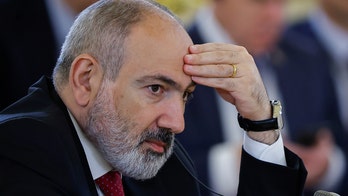Indonesia marked its 79th Independence Day with a ceremony in the unfinished future capital of Nusantara, highlighting the country's progress and challenges in moving its administrative center away from overcrowded Jakarta.
Indonesia's 79th Independence Day was a spectacle of tradition and modernity, as the country celebrated its freedom from Dutch colonial rule in the unfinished future capital of Nusantara. Despite the grand opening being pushed back due to construction delays, the event showcased the country's aspirations and the ongoing struggle to address chronic problems plaguing Jakarta, the current capital.
Hundreds of officials and guests gathered amid the towering cranes and ongoing construction of Nusantara, a city planned to alleviate the immense pressure on Jakarta. President Joko Widodo and his Cabinet, dressed in traditional tribal attire, attended the ceremony at the new Presidential Palace, shaped like the mythical Garuda eagle.

Indonesia Celebrates Independence Day, Shows Off Unfinished Capital
The celebration was initially slated to mark the transition of Nusantara as the official capital, but the transfer has been delayed due to construction setbacks. Despite the setback, Widodo remains optimistic and hopes to begin working from the new palace by 2024.
The decision to build Nusantara was driven by the severe challenges faced by Jakarta, home to an estimated 10 million people within city limits and over 30 million in the greater metropolitan area. The city grapples with chronic flooding, suffocating traffic congestion that costs the economy billions annually, and severe air and water pollution.

Indonesia Celebrates Independence Day, Shows Off Unfinished Capital
The new capital, to be built on the island of Borneo, aims to address these issues by being a green and sustainable city. It will feature renewable energy sources, smart waste management, and vast green spaces. However, the project has faced criticism from environmentalists and Indigenous communities who worry about deforestation, habitat loss, and displacement.
Despite the challenges, the government has made significant progress in Nusantara's construction. Seven groundbreaking ceremonies have taken place, paving the way for government offices, public buildings, banks, and schools. The government hopes to attract investors with incentives such as long-term land rights and tax breaks.
Investors, predominantly Indonesian companies, will play a significant role in funding the $33 billion capital project. The government is contributing 20% of the budget, while the private sector is expected to provide the remaining 80%.
As Widodo concludes his ten-year presidency in October, the transition to Nusantara remains an ambitious task. The move is intended to not only address Jakarta's problems but also symbolize Indonesia's progress and modernization. However, the challenges of construction and environmental concerns must be carefully navigated to ensure a successful and sustainable future for the new capital.










